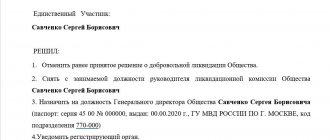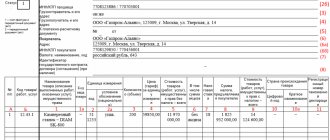Free legal consultation over the Internet 24 hoursLawyer on housing issues in St. Petersburg. Free legal consultation on labor disputes.
4.33/5 (3)
Heirs by law
As soon as a person dies, all his property values are subject to inheritance by persons who have the legal right to do so, in accordance with Article 1141 of the Civil Code of the Russian Federation. When it comes to inheritance, everything depends on the queue.
Children, as well as spouses and parents, have priority rights.
If none of the listed persons exists, they do not need an inheritance, and they have documented this, or they have been recognized in the prescribed manner as unworthy, in accordance with Article 1117 of the Civil Code of the Russian Federation, the right to inherit property is acquired by heirs of the 2nd or subsequent stages.
Important! Brothers and sisters, no matter whether they are half-blooded or related, are classified by law as the 2nd line of inheritance, as stated in Article 1143 of the Civil Code of the Russian Federation.
If these persons do not have the opportunity to accept the inherited property left behind, for example, if they are not alive, the right to inherit is automatically transferred to their children. According to Article 1146 of the Civil Code of the Russian Federation, in this case a separate inheritance scheme “by right of representation” applies. As a result, other persons become heirs. This right arises for the nephews (nieces) of the testator, since they claim the share of the heir of the 2nd stage who died.
The right of representation does not apply in several situations:
- the heir has lost the opportunity to receive inherited property in accordance with the order indicated in the text of the will by the owner;
- the heir turned out to be unworthy, and he was recognized as such, since he committed the actions listed in Article 1117 of the Civil Code of the Russian Federation;
- the brother (sister) of the deceased, belonging to the number of heirs of the 2nd stage, died with him on the same day - before the inheritance was opened.
Heirs by will
Article 1118 of the Civil Code of the Russian Federation establishes the general aspects of the inheritance procedure from the moment of death of the owner, based on a will.
It says that:
- the will must be made by 1 person;
- The testator's instructions regarding his property values will come into force as soon as the fact of his death is confirmed. A will is a unilateral transaction, therefore its contents cannot be changed if the testator is no longer alive;
- this document is an expression of a person’s last will, which he leaves in case of his sudden death;
- the last will is documented only if the testator is classified as a legally capable person;
- a will is not drawn up through an intermediary - a trustee.
The procedure for registering a will takes place in accordance with the rules described in Article 1124 of the Civil Code of the Russian Federation.
Once a document has been certified, it is not necessary to make its contents public. Moreover, the notary, as well as all persons who are in one way or another involved in the execution of the document, are obliged to keep its contents secret. This is determined by Article 1123 of the Civil Code of the Russian Federation.
A person has the right to determine his own inheritance shares, which, on the basis of a will, will be received by his brothers (sisters). In addition, he can, if he wishes, deprive any person of the right to inherit values belonging to him, which is enshrined in Article 1119 of the Civil Code of the Russian Federation. When an heir is legally designated in a will, it becomes unimportant which line of inheritance he is assigned to - he receives what is bequeathed to him.
Article 1121 of the Civil Code of the Russian Federation states that, due to circumstances, brothers and sisters of the deceased can become designated heirs. This occurs when the person named in the will renounces these rights.
Inheriting an apartment after the death of the mother.
How to withdraw money from the account of a deceased person for a funeral by inheritance, read here.
How the inheritance is divided between the wife and children, read the link:
In what cases is a sister deprived of inheritance rights?
The sister has no right to claim the inheritance after the death of her brother on any of the above grounds if she is recognized as an unworthy heir.
A heir is declared unworthy in court on the basis of a claim by an interested person if such a successor:
- Did not fulfill his obligations to pay alimony for the maintenance of the testator (according to Article 93 of the Family Code of the Russian Federation, the court may oblige an adult able-bodied sister to pay alimony to her minor brother in need if he does not receive such help from his parents, or to an adult disabled person if it is impossible its maintenance by children, spouse or parents).
- Committed a crime or other unlawful act directed against the testator, his heirs or the last will, while pursuing selfish goals (increasing the inheritance due to himself or another person).
How is the inheritance divided after the death of the testator?
All property values left by the sister are divided among the heirs depending on the chosen method of inheritance - by will (by law), as well as taking into account the category of property left by the deceased.
If inheritance takes place on the basis of law, there is an equal distribution of property between the heirs, which is required by paragraph 2 of Article 1141 of the Civil Code of the Russian Federation. The exception is cases when relatives want to receive a share, based on the right of representation - Article 1146 of the Civil Code of the Russian Federation.
Attention! Our qualified lawyers will assist you free of charge and around the clock on any issues. Find out more here.
This inheritance procedure is typical for cases where the death of the heir occurred before the death of the testator or on the same day - before the inheritance was opened. That is, the inheritance portion due to the heir will already be received by his heirs.
The inheritance procedure involves many features:
- if there is a will, everyone who is mentioned in it will receive the inheritance part that is mentioned in the last will expressed by the deceased. In a situation where several people simultaneously inherited indivisible property, it is generally considered to be “bequeathed in shares” in accordance with paragraph 2 of Article 1122 of the Civil Code of the Russian Federation. Since such property is practically impossible to divide, everything depends on the object of inheritance itself, namely its purpose. Typically, such problems are resolved in court;
- when in her last will the deceased did not decide to divide the values between the people designated in the will, each of them receives an equal part of the inheritance in accordance with paragraph 1 of Article 1122 of the Civil Code of the Russian Federation). It happens that the document does not mention the entire amount of property; in this case, the part of the inheritance that is not mentioned is divided in equal parts among the heirs by law;
- if the deceased has mandatory heirs, the list of which is given in paragraph 1 of Article 1149 of the Civil Code of the Russian Federation, the division of property occurs on the basis of special rules enshrined in this article. These citizens receive 50% of the property, as in inheritance by law. The fact that their name is absent or mentioned in the document is not important. First of all, the obligatory part of the inheritance is allocated from the property that is not mentioned in the will. If this property is missing, the remainder is taken from the inheritance included in the will. Accordingly, the remaining heirs will receive a smaller share than they could if there were no obligatory heirs;
- heirs can divide the inheritance left by the deceased sister into common property on the basis of a general agreement, which is drawn up in writing and signed by the parties to the agreement (Article 1165 of the Civil Code of the Russian Federation);
- when property that cannot be divided is transferred by inheritance, heirs are identified who have preferential rights in receiving an indivisible object. At the same time, they are obliged to compensate for the cost of that part of the property that could have gone to another heir (Article 1168 of the Civil Code of the Russian Federation). For example, two sisters lived together in the living space of one of them. After the death of the owner, the apartment was inherited by her sister and brother. In this case, the sister, who together with the deceased used this property, has an advantage in owning the property and must, in agreement with her brother, compensate him for the cost of part of the housing.
Who else can claim if there is a will for specific persons
Citizens of the Russian Federation have the right to dispose of personal property at their own discretion, including by recording their will regarding the distribution of inheritance, that is, drawing up a will. Who has the right of inheritance in such a situation?
What rights do first-priority heirs have if there is a will?
Having made a will, a person has the right to transfer things and real estate belonging to him to any of his relatives and even to a complete stranger. It is also possible to indicate legal entities as heirs. This is the freedom of testamentary will - Art. 1119 of the Civil Code of the Russian Federation.
As a general rule, if there is a will, only those persons who are indicated in it as heirs are called upon to inherit. If all inherited property is distributed between them.
If the testamentary disposition does not cover the entire estate, then the rules of inheritance by law apply to the property not specified in the will.
The so-called “those on the waiting list” are claiming the inheritance. In this situation, the heirs of the first priority are first called upon to inherit. Namely: parents, legal spouse and children of the testator - Art. 1142 of the Civil Code of the Russian Federation.
The grandchildren of the deceased may claim the inheritance by right of representation - Art. 1146 of the Civil Code of the Russian Federation. That is, their right of inheritance arises if the testator's child (grandchild's parent) died before or at the same time as him.
See also:
The procedure for inheritance by grandchildren according to law
Will children be able to claim an inheritance if they are not in the will?
The presence of an act by which the testator transfers all his property to a specific heir is not always capable of completely depriving children of inheritance rights. Civil legislation provides for certain guarantees for them.
Minor/disabled children of the testator have rights of inheritance, regardless of the terms of the will, of at least ½ of the share due to each of them upon inheritance by law.
This is called a mandatory share in the inheritance - Art. 1149 of the Civil Code of the Russian Federation.
The right to an obligatory inheritance share is satisfied from the remaining untested part of the inheritance mass. Even if this leads to a reduction in the rights of the remaining heirs under the law. And if such a part of the property is insufficient, the rights are realized from the bequeathed part of the inheritance.
The obligatory share includes the value of all property due to the recipient of such share.
At the same time, the court has the right to reduce the size of the obligatory share or refuse to award it, taking into account the property status of specific heirs with the obligatory share.
This is possible in two cases when the exercise of the right to an obligatory inheritance share will entail the impossibility of transferring property to the heir under a will:
- Which the heir with the obligatory share did not use during the life of the testator, but the beneficiary under the will used for its intended purpose (living premises, cottage, garage, etc.).
- Which the heir under the will used as the main source of earning a living (agricultural implements, art workshop, etc.).
Another opportunity to inherit property despite the testamentary will is to challenge the will itself. But to declare it invalid, there must be compelling reasons - Art. 1131 Civil Code of the Russian Federation. These include, in particular:
- Incapacity or limited legal capacity of the testator at the time of drawing up the document. They are also established posthumously during the trial.
- The testator’s inability to understand the meaning of his actions, his lack of ability to manage them.
- Drawing up an act under the influence of delusion, unfavorable conditions, deception, threat or violence.
Since a will relates to unilateral transactions, it is possible to challenge it according to the rules on the invalidity of transactions - § 2 of the Civil Code of the Russian Federation.
And finally, the testator himself has the right to take care of replacing the heir mentioned in the testamentary disposition if for some reason he ceases to be such - Art. 1121 Civil Code of the Russian Federation. The testator has the right to indicate another heir (sub-heir) in the event that the heir appointed by him in the will or the heir of the testator by law:
- Dies simultaneously with the testator, before the opening of the inheritance or after its opening, without having time to accept the inheritance.
- Will not accept inherited property for other reasons.
- Will refuse it.
- He will not have the right to inherit or he will be excluded from inheritance as unworthy.
In the absence of instructions from the testator in this regard, the rules of inheritance apply:
- By right of representation - Art. 1146 of the Civil Code of the Russian Federation.
- Based on hereditary transmission - Art. 1156 of the Civil Code of the Russian Federation.
- In accordance with the increase in inheritance shares in the case of the presence of unworthy heirs, non-acceptance or refusal of inheritance - Art. 1161 of the Civil Code of the Russian Federation.
Will a child be able to claim an inheritance if it is not in the will?
A daughter/son not specified in the testamentary dispositions will be able to claim the inheritance in the following situations:
- Not all property is bequeathed.
- They are unable to work (reached pre-retirement age or have a disability) or are under 18 years of age.
- They are designated heirs.
- The heir renounced the inherited property in their favor.
- One of the inheritors refused the inheritance without specifying the beneficiary.
- There are legal grounds for challenging the will in court and the court ruled in their favor.
How is the obligatory inheritance share allocated?
The obligatory share in the inheritance is allocated as follows:
- The entire hereditary mass is described and assessed.
- The “spousal share” (property acquired jointly during marriage) is allocated, if any.
- The remaining property is divided between the heirs under the will and persons with a mandatory share. The share of the latter is divided in half and the property is transferred to them at a price equal to the value of this share or, with their consent, equivalent compensation is paid.
Disputes about the division of inherited property are resolved in court at the place of residence of the defendant, and if we are talking about real estate - at the location of the property. This legal point is explained in paragraph 3 of the RF Supreme Court Decree No. 9 “On judicial practice in inheritance cases.”
How is the inheritance divided if there is a spousal share?
If the husband and wife acquired any property during the marriage, it is considered common and is taken into account when determining inheritance rights. First, the marital share equal to half of the jointly acquired property is subtracted from the estate. And the remaining part is divided among the heirs.
Even if there is a will that directly states that this or that property is completely transferred to a specific person, the marital share is still taken into account. That is, this citizen will be able to inherit only that part that directly belonged to the deceased (testator). Most often this is half of such property.
How to challenge a will
Courtroom
In the event of a significant violation of the provisions of the Civil Code of the Russian Federation, depending on the legal basis, the will is invalid due to its recognition as such by the court (disputable) or regardless of such recognition (void) - Art. 1131 Civil Code of the Russian Federation.
A will is recognized by the court as invalid on claims of persons whose rights or legitimate interests are violated by a specific will.
Challenging testamentary dispositions before the opening of the inheritance is unacceptable. An exception is a joint will of spouses. It can be challenged by one of the spouses during their lifetime.
After the death of one of the spouses, as well as after the death of the surviving spouse, the joint will of the husband and wife is contested by the person whose rights or legal interests are violated by such a will.
They do not serve as a basis for invalidity if the court has determined that they did not influence the understanding of the will of the testator:
- Misprints, typos.
- Minor violations of the procedure for drawing up, signing or certifying.
Both the will as a whole and the individual testamentary dispositions contained in it may be declared invalid.
The invalidity of individual testamentary dispositions does not affect the rest of the document if it is possible to assume that it would have been present in the absence of such dispositions.
The invalidity of a testamentary disposition does not deprive the heirs or legatees specified therein of the right to inherit by law or on the basis of another valid will.
What does judicial practice say?
An analysis of Reviews of Judicial Practice indicates that most often Russians turn to the courts with demands to invalidate wills due to the incapacity of the testators. For example, Review of judicial practice in inheritance cases of the Rostov Regional Court.
In this case, the courts proceed from the fact that it is the plaintiff who must prove the circumstances indicating the presence of a defect of will in the testator when drawing up a will.
How to inherit after the death of a brother or sister
Brothers and sisters, regardless of whether they are full or not, are relatives in the lateral ascending line and belong to the second line of kinship. That is, these persons inherit property only by law. Brothers and sisters are included in the second line of inheritance (Article 1143 of the Civil Code of the Russian Federation). If the deceased mentioned these relatives in his will, then inheritance is carried out on the basis of the order of the testator.
If it is indicated that the heirs are persons belonging to the second priority, or when the person’s name is mentioned in the will, then he must accept the inheritance that opened after the death of a brother or sister (Article 1152 of the Civil Code of the Russian Federation).
A person who has the right to receive an inheritance can do this in two ways - formal or actual. These methods are determined by the provisions of Art. 1153 of the Civil Code of the Russian Federation.
Watch the video. Procedure for entering into inheritance:
When a sister is called to inherit
The testator's sister can count on receiving his property on the following grounds:
- According to the law, if the brother does not have a wife and children, and the parents died, or the primary successors did not accept/refused the inheritance.
- As a dependent of the deceased, provided that for at least 12 months she received from her brother the money she needed for living.
- According to the will, in the presence of notarized orders from the brother about her appointment as an heir or sub-appointment instead of a deceased (refused) successor.
- In the order of hereditary transmission, if she is an heir (by law or by will) of a person called to succession after the death of her brother, but who died without realizing it.*
* - To better understand inheritance by transmission, it is recommended to consider the following example. After the brother's death, his children, his wife and his mother, who died soon after her son without entering into the inheritance, became the legal successors. Shortly before her death, the mother makes a will, indicating her daughter as the sole heir. After her death, the daughter, in addition to her mother’s property, also receives the deceased’s share of her brother’s inheritance (by way of transmission).
Write your question, our lawyer will prepare an answer for FREE and call you back in 5 minutes.
Formal method of acceptance
It is best to register the received inheritance with a notary.
Thus, everything will be processed in accordance with the procedure established by law. As a result of the notary performing legally significant actions, the heir will officially consolidate his status. This method will allow the heir to be confident in his rights to the inherited property, and he will be able to dispose of it at his own discretion.
How is this procedure done?
Important! Step-by-step instructions for the person who accepted the inheritance:
- contact a notary office. It must serve the territory within which the last place of residence of the deceased is located. There is only six months to accept the inheritance. If this is not done, then other applicants will receive the right to inheritance;
- Draw up an application to perform a legally significant action in relation to inherited property. After you submit the application, a probate case will be opened. From the notary you will receive information about what documents need to be prepared, how much his services cost, and in what time frame the documents will be prepared;
- Prepare a package of documents. Pay the state fee, as well as services of a legal and technical nature. Submit the prepared documentation to the notary;
- A relative of the testator, who was dependent on the deceased, must apply to the court with a request to establish this circumstance;
- When the documentation presented in full has been studied and verified by the notary, he registers the fact of acceptance of the inheritance and reports the date of receipt of the certificate. It is advisable that the document be received within 6 months after the death of the testator. Although in some cases it is possible to extend this period. Such situations occur when it comes to receiving an inheritance by way of transmission (waiting for the birth of an heir conceived before the death of the property owner), or when the priority heir did not accept the inherited property within the allotted time frame.
ATTENTION! Look at the completed sample application for opening an inheritance case:
How to make an application?
The application for acceptance of inheritance contains the following information:
- last name, first name and patronymic of the heir, residential address;
- personal data, place of work of the notary;
- Full name and date of death of the testator;
- what is included in the inherited property, a brief description of the objects of inheritance;
- on what basis does the applicant have the right to this property, clarification of the presence of other legal successors;
- date of writing the application.
ATTENTION! View the completed sample application for acceptance of inheritance:
What kind of property can be claimed?
The assets that a girl can inherit from her deceased brother depend on how many heirs the property is divided into. Therefore, the following nuances are taken into account :
- when drawing up a will, a man can indicate several successors, providing precise information about what items they can officially register;
- if property is transferred by law, then if there are several second-order heirs, then all items are divided equally between citizens;
- the share can be increased if the other heir refuses to accept the valuables by writing an official refusal;
- if the sister is represented as a compulsory heir, then she is entitled to a share that is two times less than that of the legal successors, and an increase in this share is allowed only on the basis of a court decision;
- the exact share is determined by the notary after identifying all applicants and the method of inheritance;
- if the heir is represented by a co-owner of a real estate object or other property that is classified as indivisible items, then it is permissible to conclude a special agreement on division.
Attention! All questions regarding property are resolved only through a notary involved in the management of inheritance matters.
Acceptance method actual
The actual acceptance of an inheritance is understood as physical possession of property belonging to the testator, which the new owner considers to be his property (Clause 2 of Article 1153 of the Civil Code of the Russian Federation).
Until the court proves otherwise, this person is recognized as having actually accepted the inheritance, provided that he:
- manages and owns this property;
- is responsible for its safety from outside attacks;
- pays for its maintenance;
- returns the debts of the previous owner.
Article 1163 of the Civil Code establishes a period after which the person who has actually entered into the inheritance can receive a certificate of acceptance of the inheritance. This is possible if the relevant evidence is presented to the notary.
In this case, it is not necessary to obtain a certificate. But this is necessary in the case when real estate is inherited, because relevant documents will be required to register it. It is quite difficult to refuse the procedure of formal registration of inheritance.
For example, in order to use a vehicle that was inherited after the death of the former owner, you must be registered with the MREO. Also, such property cannot be sold or donated. And in this situation, they will require a certificate of ownership.
If there is no document confirming the right to the bank deposit of the deceased, it will not be possible to withdraw money. No matter how hard the actual heir tries, it is impossible to do without contacting a notary office. You will have to contact a notary after the court has established the fact of acceptance of the inheritance.
How to avoid a quarrel
There are many options to resolve any conflicts related to property and choose the best option for dividing property that will please everyone.
In order to avoid troubles and quarrels, it is worth agreeing on the division of property peacefully, concluding an agreement that secures the right to one or another inherited property for each of the relatives. The ability to reach an agreement and good relations between relatives will eliminate the need to go to court, proceedings that can last for a long time.
How to refuse an inheritance in favor of a sister or brother
At the legislative level, it is possible for heirs to renounce their right to inherited property, including renunciation in favor of other persons (Article 1157 of the Civil Code of the Russian Federation).
This can be done within the period established by Art. 1154 Civil Code. Sometimes a refusal of inheritance is formalized after the successor has accepted it formally or in fact.
If the successor decides to renounce the inheritance in favor of a relative, he will need to draw up a statement of refusal and submit it to the notary at the place where the inheritance was opened (clause 1 of Article 1159 of the Civil Code). If an inheritance case is opened for this estate in another notary office, you need to write a statement of refusal and submit it to the specialist who opened the specified case.
ATTENTION! View the completed sample application for renunciation of inheritance:
Please note! You can refuse an inheritance in favor of a relative if the conditions listed in Art. 1158 GK:
- The relative in whose favor the successor wants to renounce must have the right to inherit the property of the deceased by law, in accordance with a will, by right of representation or by hereditary transmission. It is impossible to refuse an inheritance in favor of other persons;
- The will should not state that the relative is deprived of inheritance. It is also impossible to transfer the right to inheritance to a relative who is recognized as an unworthy heir;
- You can refuse a share that is not obligatory. The fact is that only certain persons can receive a mandatory share in the inherited property. It will not be possible to give up your obligatory share in favor of someone else;
- If a legal successor who wants to renounce his share in favor of a relative has sub-designated heirs, he will not be able to perform these actions. If there are such persons, the refusal will be unlawful;
- No conditions or stipulations are allowed in the renunciation of inheritance;
- It will not be possible to refuse part of the due share in the inheritance. Such actions are possible only if a successor is called for several reasons simultaneously. He may refuse one or more of them.
The main contenders for the inheritance of a deceased brother
The list of heirs established by the Civil Code of the Russian Federation includes eight lines of potential heirs to the testator's property.
Each subsequent group of heirs can claim it only if there are no claimants of the group ahead of it or have refused the inheritance due to them. The further the family relationship, the less chance of receiving an inheritance. The most important claimants to a brother’s property included in the inheritance are the people closest to him who are part of the family. If he has a wife and children, and also parents, then they constitute his family circle and are the primary heirs of his brother’s property.
If the children died before the brother himself, but they still have their own descendants, then they will accept the grandfather's inheritance (for them the brother will be the grandfather), instead of their deceased parents, and not receive their inheritance, which they inherited from their grandfather.
The brother could also leave a testamentary order to transfer his inheritance to any person, and this may not necessarily be close relatives. It could have expressed his will to distribute the inheritance among those people whom he favored during his lifetime, while excluding unworthy heirs.
Expert commentary
Shadrin Alexey
Lawyer
When drawing up a will, the share due to disabled persons who were supported by a brother for one year or more until the brother’s departure to another world must be taken into account.
Deadline for inheritance
The inheritance opens at the time of the death of the testator. From this moment the period established by law for accepting the inheritance begins. It is 6 months (Article 1154 of the Civil Code of the Russian Federation).
If the heir refuses the inheritance, the next successor has the same period for accepting it. The same situation is typical for cases when the heir is removed from the inheritance procedure by a court decision. But if these heirs do not assume their rights, the successors following them have only 3 months at their disposal.
What state duty is paid?
Please note! In the process of accepting an inheritance, a state fee is paid. Its size depends on the degree of relationship between the heir and the testator:
- Heirs belonging to the first priority pay a state duty in the amount of 0.3% of the value of the inherited property;
- All other heirs contribute an amount of 0.6% of the value of the property received by inheritance.
In this case, the maximum amount should not exceed 1 million rubles.
Ownership of inherited property is possible only after a notary has issued the appropriate certificate, which cannot be obtained without paying a state fee.
The amount of the state duty directly depends on the value of the property. It will not be possible to accurately calculate this amount without the help of professional appraisers. Therefore, it is better to seek help from specialists - an appraisal bureau or lawyers who deal with inheritance cases.





